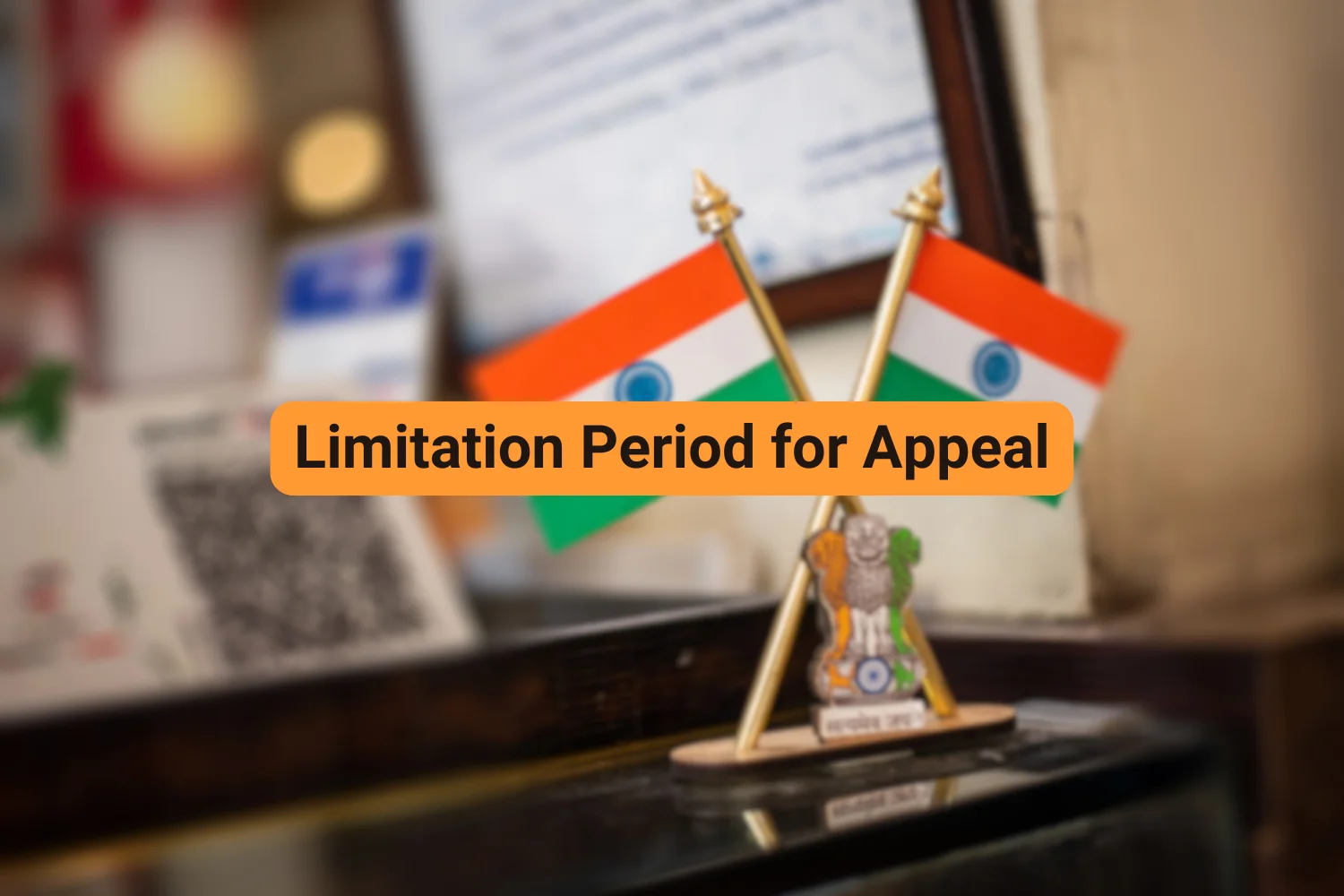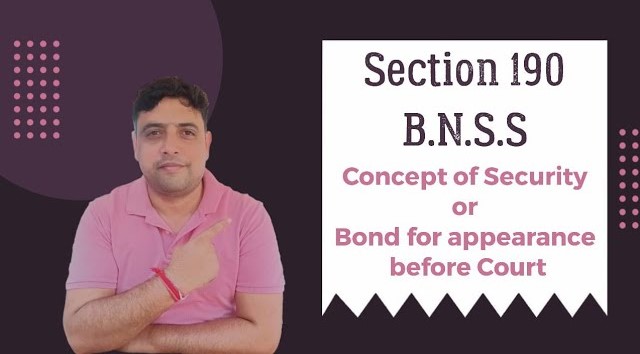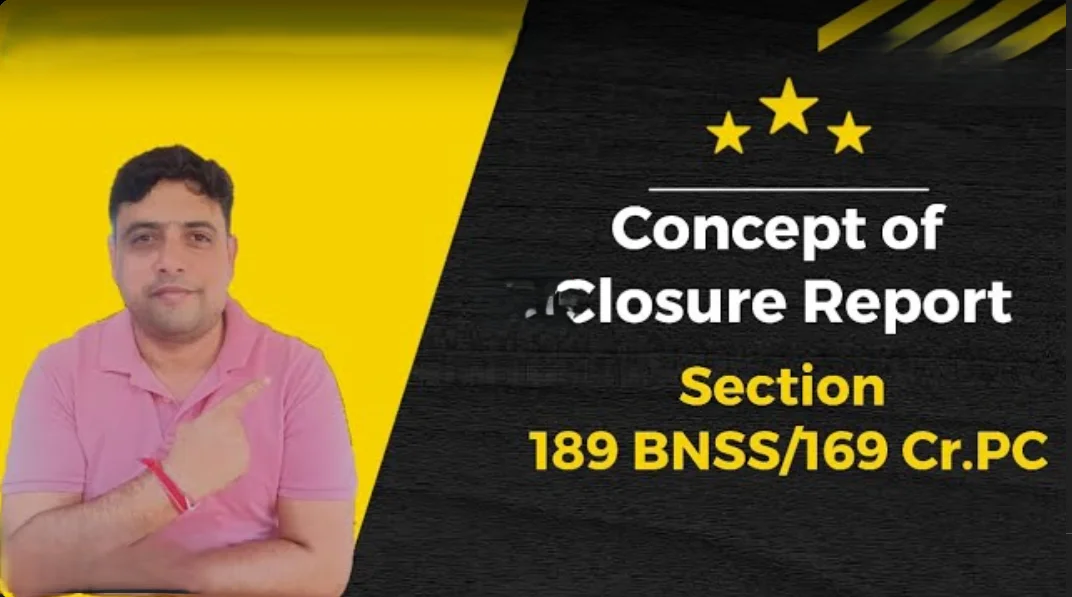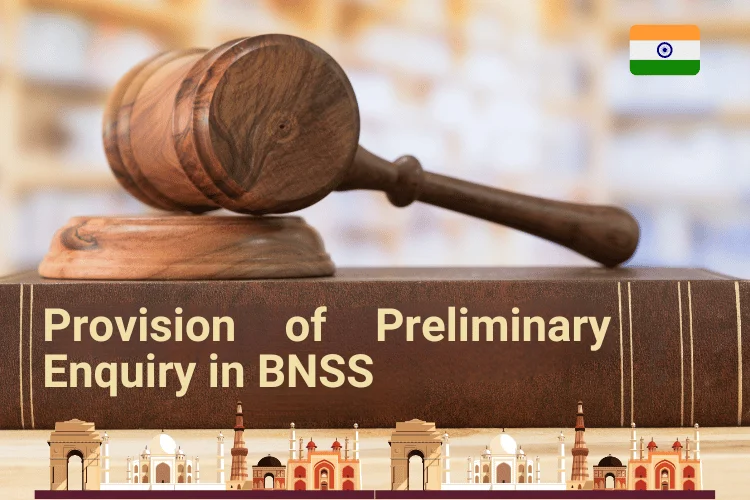PROCEDURE FOR DEALING WITH AN APPEAL OR POWER OF APPEALATE COURT [SECTION 381-394 ]
We have already discuss Kinds of Appeal and offences in Cases in which No Appeal Lies
In this Part we will discuss Power of Appealate Court
PROCEDURE FOR DEALING WITH AN APPEAL/ POWER OF APPEALATE COURT [SECTION 381-394 ]
Hearing of Appeals in the Court of Session [Section 381]: Appeals to the Court of Session or Sessions Judge are typically heard by:
- Sessions Judge
- Additional Sessions Judge
However, appeals against convictions in trials held by a Magistrate of the second-class may also be heard by:
- Assistant Sessions Judge
- Chief Judicial Magistrate
Additional Sessions Judges, Assistant Sessions Judges, and Chief Judicial Magistrates can only hear appeals If Sessions Judge or the High Court of the division has assigned to them such power through a general or special order
In summary, the Sessions Judge typically hears appeals, but Additional Sessions Judges, Assistant Sessions Judges, and Chief Judicial Magistrates can also hear appeals in certain circumstances, as specified by the Sessions Judge or High Court.
Petition of Appeal and its Presentation [Section 382]: Section 382 elaborate the Format of Appeal Petition:
When filing an appeal, the petition should:
- Be in writing
- Be in the form of a petition
- Be presented by the appellant (the person appealing) or their pleader (legal representative)
- Appeal should be accompanied by a copy of the judgment or order being appealed against.
Additionally, if the appeal is presented to the Administrator or Executive Magistrate under Section 383(1), it will be considered as if it was presented to the proper appellate court.
In essence, this section outlines the basic requirements for preparing and presenting an appeal petition to the appellate court.
Procedure when appellant in jail (section 383):If the person appealing (appellant) is in jail, he can:
- Present their appeal petition and supporting documents to the officer in charge of the jail.
- The officer will then forward the petition and documents to the proper Appellate Court.
This section makes it possible for someone in jail to file an appeal by submitting their petition and documents to the jail officer, who will then ensure it reaches the correct court. This provision facilitates the appeal process for those in custody.
Summary Disposal of Appeal [Section 384]:Section 384 of the law allows an appellate court to dismiss an appeal without a full hearing , if it finds no valid reasons to intervene. Before doing so, the court may request the case records. If the dismissal is by a Sessions Court or CJM, they must provide reasons for the dismissal. However, the powers of a court to summarily dismiss an appeal are to be exercised subject to the following three qualifications:
-
The appellant or their representative must have had a fair chance to present their case.
-
If the appellant is in jail, the appeal can't be dismissed unless it's deemed frivolous or bringing the accused to court would cause disproportionate inconvenience.
-
The appeal can't be dismissed until the time allowed for filing the appeal has expired.
In essence, the court has the power to dismiss an appeal quickly, but only after considering the case and ensuring the appellant has had a fair chance to be heard. Even if a jail appeal is quickly dismissed, the higher court can still hear and decide another appeal from the same person if it's in the interests of justice. This is an exception to the usual rule that a court decision is final.
Case Laws
U.J.S. Chopra vs State of Bombay 1955 Supreme Court
The power to quickly dismiss an appeal should be used carefully, as it's just as important as a decision made after a full hearing.
Rajpal Bhiraram vs State 1974 Supreme Court
When dismissing an appeal quickly, the Sessions Court, Chief Judicial Magistrate, or High Court must provide reasons for their decision.
The Supreme Court can review the evidence and make a final decision, even if the High Court quickly dismissed the appeal.
This ensures that justice is served, and the higher court considers the appellant's case fairly before making a quick decision.
Durga Dan AIR 1959
A criminal appeal cannot be dismissed on the ground that no one appeared to support the petition. The Code does not contemplate dismissal of appeal for non-prosecution. The appellate court must decide an appeal on the merits and it cannot be dismissed in default of the appellant's appearance.
Khedu Mohton vs State of Bihar 1970 SCC
Once an appeal lodged whether by the accused or by the Government has been admitted, it is not in the power of any court nor in the power of the appellant to allow it to be withdrawn. It is the duty of the appellate court to decide the appeal irrespective of the fact that the appellant either does not choose to prosecute it or is unable to do so for any reason.
While there are provisions for withdrawals of trials under section 224,257 and 321 , there is no provision in the code for the withdrawal of appeals.
Procedure in Appeal not dismissed summarily [Section 385]:When an appeal is admitted and not dismissed summarily, the appellate court follows these steps for the hearing:
-
The Appellate Court shall give notice of the time and place at which the appeal is to be heard. Notice shall be sent to:
- The appellant and their representative
- The State Government's representative
- The complainant (if the appeal is against a conviction in a case started by a complaint)
- The accused (if the appeal is against a sentence or acquittal)
-
The appellate court provides the above parties with a copy of the grounds for appeal. The court requests the case records and hears arguments from the parties.
-
If the appeal is only about the sentence's legality or extent, the court may decide without requesting the records.
-
If the appeal is solely about the sentence's severity, the appellant needs the court's permission to raise additional grounds.
This procedure ensures a thorough and fair hearing of the appeal.
Power of appellate court [Section 386]:Section 386 of the Code confers powers on the appellate court to dispose of appeals in various ways, after reviewing the case records and hearing the parties involved. The powers include:
- Dismissing an appeal if there's no sufficient ground for interference.
- In an appeal from an order of acquittal:
- Reversing the acquittal and directing further inquiry, re-trial, or committing the accused for trial.
- Finding the accused guilty and passing sentence according to law.
- Only the High Court can entertain an appeal against an order of acquittal, and if the State doesn't appeal, the acquittal becomes final.
- In an appeal from a conviction:
- Reversing the finding and sentence, and acquitting or discharging the accused, or ordering a re-trial or commitment for trial.
- Altering the finding, maintaining the sentence.
- Altering the nature or extent of the sentence, but not enhancing it.
These powers enable the appellate court to exercise judicial discretion and ensure justice is served in various appeal scenarios.
Case Laws
State of W.B. v Kailash Chandra Pandey AIR 2005 SC : It was held in this case , When hearing an appeal against conviction, the appellate court has the power to:
-
- Scrutinize the entire evidence
- Weigh the probabilities
- Accept or reject evidence that was rejected or accepted by the trial court
The appellate court's powers are equivalent to those of the trial court, and it should provide reasons for its orders. However, appellate courts should generally avoid re-appreciating evidence. Instead, they should focus on reviewing the trial court's decision and determining if there were any errors or injustices that need to be addressed.
Ukha Kolhe v State of Maharashtra (AIR 1963 SC): The Supreme Court's decision in this case, sets a significant precedent for ordering re-trials. The court held that re-trial is only warranted in exceptional circumstances, including:
- Lack of jurisdiction by the trial court
- Serious illegalities or irregularities that vitiated the trial
- Prevention of the prosecutor or accused from presenting material evidence
- When the appellate court deems it necessary in the interests of justice
The court emphasized that re-trial is an extraordinary remedy, and its power should be exercised with caution to ensure justice is served and the legal process is maintained with integrity. This ruling provides guidance for future cases where re-trial is sought, ensuring that the exceptionality of this remedy is upheld.
Sadha Singh (1985 CrLJ 1361) The Supreme Court's decision in this case clarifies the scope of the appellate court's power to "alter" a sentence while maintaining the conviction. The key takeaways are:
-
- Alteration of sentence means reducing or modifying the sentence, not enhancing it.
- The court cannot alter a finding to convict the accused of a different offense.
- The appellate court cannot enhance a sentence on appeal (though the High Court can in revision).
- Altering a sentence to increase its severity is prohibited by Sec. 386.
The Supreme Court's decision emphasizes that the appellate court's power to alter a sentence is limited to making it less harsh, not more severe. This ensures that the accused is not unfairly prejudiced and that the appellate court's powers are exercised judiciously.
State of Himachal Pradesh vs Shaul Borov 2023
In an instant case, the respondent was found in possession of 2.500 kgs of commercial quality charas. The appellant submitted that the respondent was liable to imprisonment for not less than ten years and payment of fine which was not less than Rs. 1,00,000. However, the respondent was sentenced to undergo rigorous imprisonment for six months and payment of fine of Rs. 1,000.
Thus, the appellant that is State of Himachal Pradesh filed the present appeal and submitted that the Trial Court had sentenced the respondent for the possession of small quality charas, however, it was of commercial quality. Therefore, the sentence imposed by the Trial Court was inadequate and it was required to be enhanced.
Hon’ble High Court opined that when a person was charged with graver offences, but that person was convicted of lesser offences, it amounted to the acquittal of serious offence. The Court opined that in an appeal for enhancement of sentence, it was not permissible for the High Court to convert the lesser offence into serious offence and the High Court could only enhance the sentence provided for the lesser offence of which the person was guilty.
The Court opined that in the present case, the offence of possession of a small quantity was punishable with rigorous imprisonment extendable up to one year or with a fine which might extend to Rs, 10,000. The Court opined that the respondent had already undergone imprisonment for a period more than the maximum sentence prescribed, therefore, it was not permissible to further enhance the sentence and accordingly, dismissed the present appeal.
- In an appeal for enhancement of sentence: The appellate court has the same powers as in an appeal from conviction, plus additional powers to enhance or reduce the sentence [Sec. 386(c)]. The appellate court has the power to:
-
Reverse the finding and sentence and:
- Acquit or discharge the accused
- Order a re-trial by a competent court
-
Alter the finding, maintaining the sentence
-
With or without altering the finding, alter the sentence:
- Enhance or reduce the sentence
- Alter the nature or extent, or both, of the sentence
However, there are limitations:
- In cases where the minimum sentence is life imprisonment (e.g., Sec. 302 IPC), the court cannot reduce the sentence.
- The appellate court cannot inflict a greater punishment than what the trial court could have passed for the offence (Second proviso, Sec. 386).
- The sentence shall not be enhanced unless the accused has had an opportunity to show cause against such enhancement (First proviso, Sec. 386).
Case Law
Ram Singh v State of Bihar (1996 CrLJ 2528 SC), In this case , the High Court's enhancement of the sentence from 7 years' rigorous imprisonment to life imprisonment for an offence under Sec. 304 IPC was held to be uncalled for, as the original sentence was not inadequate.
These provisions ensure that the appellate court exercises its powers judiciously and does not unfairly prejudice the accused.
- In an Appeal from any other order - The appellate court may in such a case alter or reverse such order [386 (d)
Amendment of order - The appellate court may make any amendment or any consequantial / incidental order that may be just or proper.
Suspension of sentence pending appeal and release on bail [Section 389]
Suspension of Sentence: The Appellate Court may, for reasons recorded in writing, suspend the execution of the sentence or order -
Release on Bail: If the appellant is in confinement, the court may release them on bail or on their own bond.
There are proviso appended to this sub clause (1) of section 389 which enumerates exception for the power of court under aforementioned 389(1).
Exceptions: In cases where the appellant is convicted of an offence punishable with:
- Death
- Imprisonment for life
- Imprisonment for a term of not less than ten years
The court must give the Public Prosecutor an opportunity to show cause in writing against the release.
Cancellation of Bail: If the appellant is released on bail, the Public Prosecutor may file an application for cancellation of the bail.
Analysis:
Section 389 of the Code of Criminal Procedure (CrPC) provides a crucial relief to the appellant pending the appeal, while also ensuring that the interests of justice are protected. The appellate court has the discretion to suspend the execution of the sentence or order appealed against, and release the appellant on bail or on their own bond. However, in cases where the punishment is severe, the court must give the Public Prosecutor an opportunity to show cause against the release, and the Public Prosecutor may also file an application for cancellation of bail if the appellant is released on bail. This section strikes a balance between the rights of the appellant and the interests of justice.
Section 389 of the Code of Criminal Procedure (CrPC) also applies to the High Court in cases where a convicted person appeals to a court subordinate to the High Court. This means that the High Court has the same powers as an Appellate Court as aforementioned in 389(1).
This provision ensures that the High Court has the authority to grant relief to the appellant pending the appeal, while also protecting the interests of justice.
- Section 389(3) of the Code of Criminal Procedure (CrPC) provides that where a convicted person satisfies the court that they intend to present an appeal, the court shall:
- If the person is on bail and sentenced to imprisonment for a term not exceeding three years, or
- If the offence is a bailable one and the person is on bail,
Order that the convicted person be released on bail for a period sufficient to:
- Present the appeal
- Obtain the orders of the Appellate Court
During this time, the sentence of imprisonment shall remain suspended. The period of release shall be excluded in computing the term for which the person is sentenced.
However, there are two important provisos:
- The court must serve notice to the prosecution before releasing a person convicted of an offence punishable with imprisonment for a term of not less than ten years.
- The prosecution is permitted to move an application for cancellation of such bail.
This section aims to balance the rights of the convicted person to seek an appeal with the interests of justice and public safety. Under Section 389(3) of the Code of Criminal Procedure (CrPC), the accused must satisfy the court that they are eligible to be released on bail. However, the court is not obligated to release the accused in all circumstances. The court may choose not to release the accused if there are special reasons for not doing so.
The primary objective of this section is to enable the convict to present their appeal to the appellate court. It is a situation of deemed suspension, where the sentence is suspended until the appeal is disposed of.
Importantly, the trial court cannot suspend the sentence and simultaneously release the convict on bail.
Case Laws
Atul Tripathi vs State of UP 2014 Supreme Court: In this case, Supreme Court has laid down guidelines for the scope of section 389 of the code.
Before releasing a convict on bail or suspending sentence, the appellate court must:
-
Give the public prosecutor a chance to object in writing.
-
Consider the State's written objections, if any.
-
Note in the order if no objections are filed despite the opportunity.
-
Carefully consider all relevant factors, including:
-
Severity of the crime
- Type of crime
- Convict's age
- Criminal history
- Impact on public confidence in the court
These guidelines help ensure the appellate court makes a fair and informed decision.
Deepak vs State of Rajasthan 2019 SC :
When granting bail, the court doesn't need to conduct a thorough examination of the evidence or extensively document the case's merits. However, the court must provide reasons in its order for granting bail, especially when the accused is charged with a serious offense. This is necessary to demonstrate that the court has applied its mind and considered the relevant factors.
An order granting bail without reasons may be deemed to have been issued without proper consideration, indicating a lack of application of mind. This could potentially be challenged in a higher court.
The Supreme Court has emphasized the importance of providing reasons in bail orders to ensure transparency, accountability, and fairness in the judicial process. By providing reasons, the court demonstrates that it has carefully considered the case and made an informed decision, which helps maintain public trust and confidence in the legal system.
Section 389 and 439 of Code of Criminal Procedure
There are two different stages in a criminal case:
- Pre-conviction (before a person is found guilty)
- Post-conviction (after a person is found guilty)
The rules for granting bail are different at these two stages.
At the pre-conviction stage (Section 439), the court considers bail based on the assumption that the person is innocent until proven guilty. The court may grant bail after giving notice to the prosecutor, especially for serious offenses.
At the post-conviction stage (Section 389), the person has already been found guilty, so the presumption of innocence no longer applies. The court considers suspension of sentence or release on bail only after the prosecutor has had a chance to object in writing, especially for serious offenses like death, life imprisonment, or long-term imprisonment.
The key difference is that at the pre-conviction stage, the focus is on ensuring the person appears for trial, while at the post-conviction stage, the focus is on whether the convicted person should be released on bail or have their sentence suspended.
Power of appellate court to take additional evidence [section 391]
This is Section 391 of the Code of Criminal Procedure (CrPC), which deals with the power of the Appellate Court to take additional evidence or direct it to be taken. Here's a breakdown of the section:
- The Appellate Court may take additional evidence if it thinks it's necessary, and must record its reasons for doing so. It can either take the evidence itself or direct a Magistrate (or a Court of Session if the Appellate Court is a High Court) to take it.
- The Magistrate or Court of Session taking the evidence shall certify it to the Appellate Court, which shall then proceed to dispose of the appeal.
- The accused or their pleader has the right to be present when the additional evidence is taken.
- The taking of evidence under this section shall be subject to the provisions of Chapter XXIII, which deals with the procedure for taking evidence, as if it were an inquiry.
In summary, this section allows the Appellate Court to take additional evidence if necessary, and sets out the procedure for doing so, including the right of the accused to be present and the requirements for certifying and disposing of the evidence.
Case Law
Rajeswar Prasad Misra v. State of West Bengal and Another (1965) and Brig. Sukhjeet Singh vs State of UP (2019) : The court in this case clarified the scope of Section 391, emphasizing that:
- The appellate court has wide discretion to record additional evidence if necessary.
- The test is not whether the evidence is necessary for a judgment, but whether failure to record it would result in a failure of justice.
- This power must be exercised sparingly and only in suitable cases.
- Once justified, there is no restriction on the type of evidence that may be received.
- The evidence may be formal or substantial, but it should not cause prejudice to the accused.
- The order should not be made if the prosecution had a fair opportunity and did not avail of it, unless justice requires otherwise.
In simpler terms, the court has the discretion to allow additional evidence if it's necessary for a fair outcome, but this power should be used sparingly and only when necessary to prevent a failure of justice. The evidence can be of any type, but it should not unfairly prejudice the accused or change the case against them.
Zahira Habibulla H. Sheikh v State of Gujarat (2004) - also known as the "Best Bakery Case" - is a significant one. The Supreme Court's in this held that:
- The Appellate Court has the power to call for additional evidence before disposing of an appeal.
- The purpose of Section 391 is to serve the ends of justice and uncover the truth.
- In this case, the star eyewitness had initially withheld the truth but later willing to speak truthfully based on an affidavit.
- The Appellate Court should not have rejected the application for additional evidence merely by branding the witness as untruthful.
- The underlying object of the court is to find the truth, dispense justice impartially, and ensure that the legal process is not used to perpetuate unfairness, oppression, or injustice.
This judgment highlights the importance of seeking truth and justice, and the need for courts to be vigilant in preventing the manipulation of the legal process to achieve unfair outcomes.
Procedure where judges of court of appeal are equally divided [section 392]
Section 392 of the Code of Criminal Procedure (CrPC) deals with the procedure to be followed when the judges of the appellate court (High Court) are equally divided in their opinion on an appeal. In such a situation:
- The appeal, along with the divergent opinions of the judges, shall be placed before another judge of the same court.
- This judge, after hearing the matter as they deem fit, shall deliver their opinion.
- The judgment or order shall follow the opinion of this judge.
However, there is a proviso (exception) to this procedure:
- If any of the judges who constituted the original bench, or the judge who is hearing the appeal under this section, so requires, the appeal shall be re-heard and decided by a larger bench of judges.
In essence, this section provides a mechanism to resolve tie-breaker situations in appellate courts, ensuring that a decision is reached and justice is delivered.
Finality of judgements and orders on appeal[section 393] :
Section 393 of the Code of Criminal Procedure (CrPC) states that judgments and orders passed by the appellate court are final, except in the following cases:
- Appeal against inadequacy of sentence (Section 377)
- Appeal against acquittal (Section 378)
- Regular appeal coming for hearing after dismissal of jail appeal (Section 384(4))
- Reference or revision (Chapter XXX)
However, even if the appeal against conviction is finally disposed of, the appellate court still has the power to hear and dispose of an appeal filed by the Government against the order of acquittal or inadequacy of sentence in the same case.
Important points to note regarding above provision:
-
- The appellate court cannot review its own judgment passed in an appeal.
- The inherent powers of the High Court cannot be invoked to review its own judgment.
- Orders of an appellate court are open to revision.
- If an appeal is dismissed due to non-prosecution within the time fixed by the law of limitation, the appellate court cannot reconsider its order and hear the appeal.
- However, an order rejecting an appeal on default of attendance of the appellant may not prevent a Sessions Court from restoring it, as the order is not a 'judgment' under Section 362.
Abatement of appeal [section 394]
Section 394(2) of the CrPC states that an appeal against conviction shall abate if the appellant dies during the pendency of the appeal, but this does not apply to sentences involving only a fine. In such cases, the sentence of fine can still be enforced through recovery of the fine amount.
The abatement of an appeal under Section 394 CrPC means that the jail sentence will no longer be enforceable upon the death of the appellant, but it does not erase the stigma of conviction or set aside the conviction. To address this, the proviso allows near relatives of the deceased appellant to prosecute the appeal with the leave of the court, enabling them to seek a favorable finding in the appeal and clear the stigma of conviction.
In contrast, if the sentence is only a fine, the appeal will not abate, and the court will decide the appeal on its merits. This means that the legal heirs or near relatives of the deceased appellant can still pursue the appeal to challenge the conviction, even if the appellant has passed away.
CONCLUSION
The appellate court's powers under the CrPC are a crucial aspect of the criminal justice system, ensuring that justice is served and that the rights of the accused are protected. The appellate court's ability to review and revise judgments and orders of lower courts provides a vital check on the exercise of judicial power, preventing miscarriages of justice and upholding the rule of law. Through its powers of appeal, revision, and sentence modification, the appellate court plays a vital role in maintaining the integrity and fairness of the criminal justice system, and ensuring that the guilty are held accountable while the innocent are protected.

















